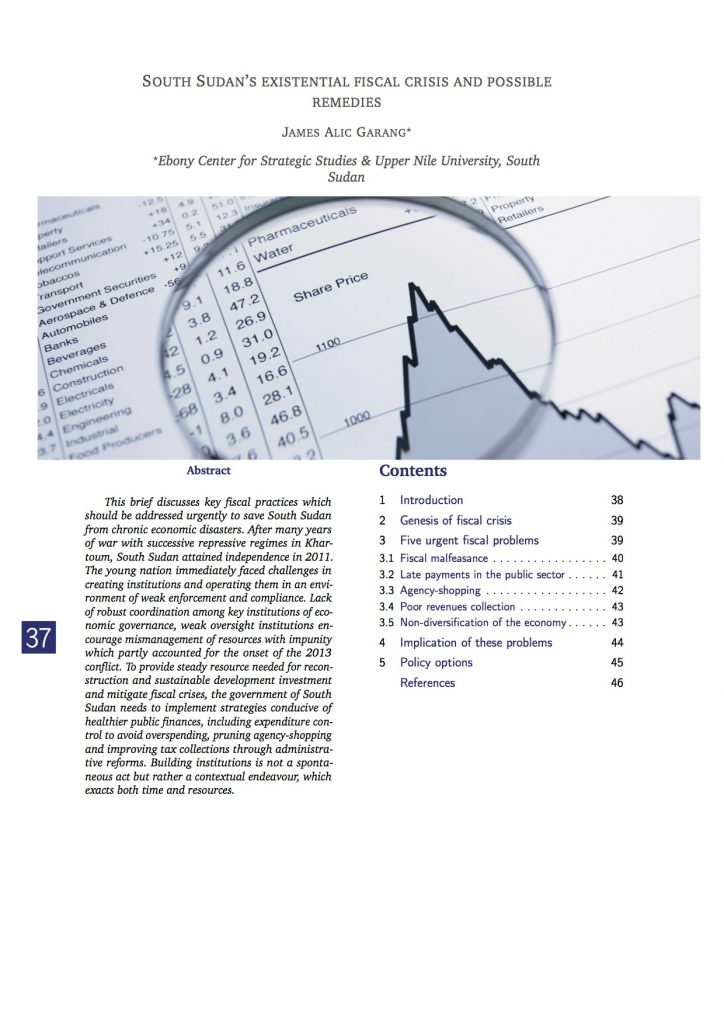 Despite a decade of strong growth, Sub-Saharan Africa still faces a number of social and economic challenges. These range from access to education, off-the-grid electricity, clean water, job creation and public infrastructure. While there is no silver bullet, one word is inspiring millions – innovation.
Despite a decade of strong growth, Sub-Saharan Africa still faces a number of social and economic challenges. These range from access to education, off-the-grid electricity, clean water, job creation and public infrastructure. While there is no silver bullet, one word is inspiring millions – innovation.
Of course, innovation doesn’t just happen, it takes government will. In short, the region needs to reform its economic structures to make enterprise easier. The international community also has its part to play as do foreign governments and global bodies – one piece of the jigsaw is a fair deal on climate change.
The COP21 conference in Paris last year laid bare the dual threats to African economic growth in relation to global warming. The first is that by asking African countries to greatly reduce their carbon output, we are asking the region to compromise economic development.
Moreover, climate change is, and will continue to impact Africa disproportionately through flooding, drought and starvation. It is the ultimate injustice that African development should be threatened in this way. Francois Holland said at COP21 that the world owes “…an ecological debt…” to Africa. Such vocal support was much needed and it just that the final COP21 deal states that developing countries are entitled to international support in the development of new technologies. If the international community meets these obligations, African innovators will stand a much greater chance of building sustainable businesses.
Young Africans overwhelmingly prefer to work for themselves than for an existing company. They are tech-savvy with high mobile phone penetration and the continent has a growing middle-class that is hungry for high-end products and services. COP21 also provided Africa with an opportunity to showcase home-grown technologies that provide new ways to bring clean water and energy to the poorest rural communities. Energy and water support one of the region’s most important industries – agriculture. It employs millions.
Organizations such as Gorta-Self Help Africa are supporting rural farming communities across sub-Saharan Africa, helping them to find new ways of yielding crops. These include developing drought tolerant crop varieties and ‘climate smart’ technologies that help to keep moisture in the soil. Home-grown innovations such as these reduce reliance on purchasing foreign technologies, they create jobs and help to create supply chains that are the building blocks of a diverse small and medium enterprises (SME) sector. The COP21 deal also mandates that developed countries pool capital in order to provide poorer nations with at least $100 billion per year by 2020.
It is within this context of international support that young innovators can realise their potential – and it is not confined to agriculture or the environment. Mobile money solutions have helped millions of unbanked Africans enter the banking system by enabling the transfer of funds or shopping through a simple mobile phone. In the healthcare sector, new technologies are being created that have a high social impact in the prevention and treatment of disease. Professor Lesley Erica Scott won the Innovation Prize for Africa’s ‘Special Prize for Innovation’ with the development of the Smartspot TBCheck – a device that is designed to assess whether or not machines used to diagnose TB function properly. This is a technology that will greatly aid accurate diagnosis and help to curb the TB epidemic in Africa.
The challenge for such innovators is often limited access to capital. A region of disparate economies and financial systems means that Sub-Saharan Africa does not have the capital markets needed to support entrepreneurs. However, some countries, such as Angola, are pushing ahead with economic reforms that include public-private partnerships. Angola has also launched a unique state-backed venture capital fund, FACRA, which acts as a conduit between growing Angolan businesses and foreign investors. Through FACRA, businesses and investors from developed countries have an opportunity to meet financially viable, growing Angolan enterprises – providing foreign firms with investment opportunities whilst creating a new pathway for Angolan entrepreneurs to reach the capital they need to grow.
As we look ahead to a year of economic uncertainty – where low oil prices and a slump in commodities are the new normal – Sub-Saharan African nations and the international community must push ahead and do everything possible to support African innovators. Capital markets must mature, banks must be liberalised, governments must find new ways of enabling innovation and the global community must continue to do its fair share.
Africa has what it takes to create a tomorrow that helps it to meet its climate change obligations and innovators that will go on to build robust, diverse economies. Economic growth and environmental responsibility are not mutually exclusive and in order to support economic growth, the world must unite so that African entrepreneurs can develop financially viable businesses that provide African solutions to African challenges.
This article was published for the first time by TEODORO DE JESUS XAVIER POULSON on the website of the World Bank.
Rubrique Analyse Economique
 This brief discusses key fiscal practices which should be addressed urgently to save South Sudan from chronic economic disasters. After many years of war with successive repressive regimes in Khartoum, South Sudan attained independence in 2011. The young nation immediately faced challenges in creating institutions and operating them in an environment of weak enforcement and compliance.
This brief discusses key fiscal practices which should be addressed urgently to save South Sudan from chronic economic disasters. After many years of war with successive repressive regimes in Khartoum, South Sudan attained independence in 2011. The young nation immediately faced challenges in creating institutions and operating them in an environment of weak enforcement and compliance.
